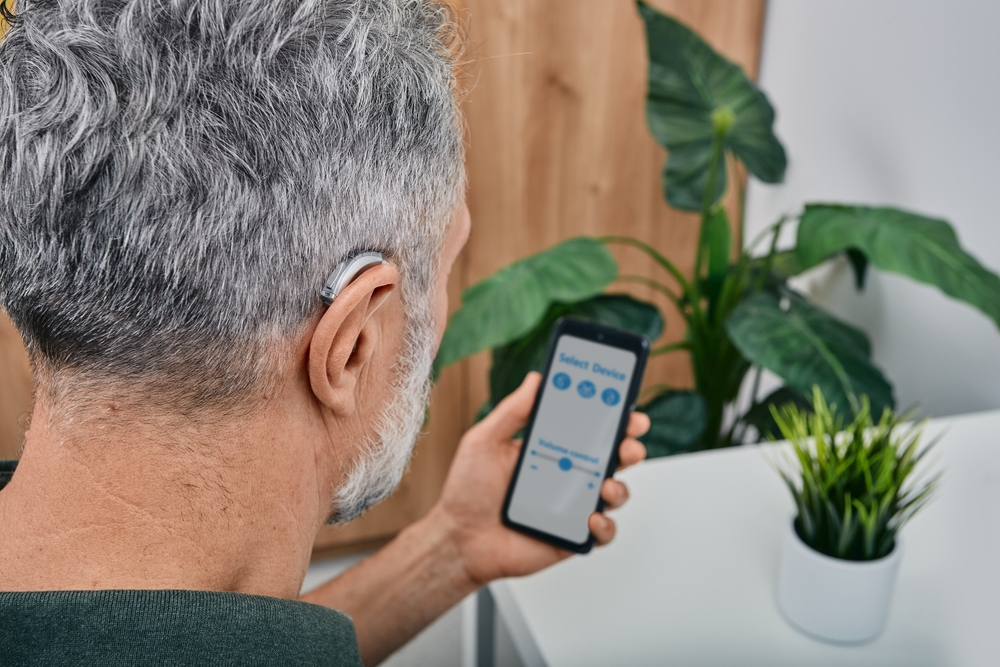
Even mild hearing loss can substantially impact daily life, influencing relationships with friends, family members, and colleagues, as well as complicating routine activities such as grocery shopping. However, the benefits of well-calibrated hearing aids can promote transformative changes.
Top ten reasons to invest in hearing aids
Although improving hearing is the evident and primary benefit of hearing aids, their positive effect goes way beyond that. Let’s investigate the comprehensive advantages that using hearing aids can offer.
Improved relationships and communication
Clear communication is the basis of meaningful relationships. Neglected hearing loss often results in missed conversations and misunderstandings, which can stress relationships. Hearing aids enable you to fully participate in conversations, enhancing your ability to interact with others and reducing feelings of isolation or frustration.
Enhanced independence
Neglected hearing loss leads to barriers in communication causing tasks like going shopping to become difficult. Hearing aids empower you to navigate these situations independently by improving your ability to hear and understand speech in a variety of environments. This newfound independence extends to activities like driving, where improved situational awareness contributes to safer experiences.
Possibility of making more money
Reliable communication is key when you’re working in professional situations. Untreated hearing loss can impede your ability to participate in meetings or discussions fully, potentially influencing job performance and career advancement. By using hearing aids, you can remain engaged and alert, enhancing your productivity and opening doors to career opportunities.
Discomfort From Tinnitus Can be Reduced
Hearing loss is commonly accompanied by tinnitus symptoms or ringing in the ears. Many individuals find that using hearing aids helps mask tinnitus sounds, providing relief and improving all-around comfort.
Mitigated cognitive decline
A connection between cognitive decline and dementia, and hearing loss has been suggested by the results of some studies. It’s possible that utilizing hearing aids to treat neglected hearing loss can reduce the chance of cognitive impairment and help sustain the overall health of the brain.
The ability to enjoy music
The perception of music will be less pleasurable if hearing loss is altering your perception of it. The fullness and richness of musical sounds can be restored by hearing aids which fill in the frequency gaps so you can take pleasure in your favorite songs again.
Boosted confidence
Clear hearing encourages confidence in social interactions and professional situations alike. With increased communication abilities, you’ll feel more self-assured and capable, improving your general quality of life.
Having more energy
Neglected hearing loss pushes the brain to work extremely hard to fill in missing sound which can be mentally exhausting. Hearing aids decrease this strain, giving you mental relief and allowing you to enjoy activities without feeling continuously fatigued.
Increased safety and awareness
Awareness of one’s surroundings is crucial for safety, whether it’s crossing the road or driving a vehicle. Hearing aids rejuvenate environmental sounds, such as approaching vehicles or alarms, ensuring that you can react properly and safely.
Establishing a positive example
You will set a positive example for others dealing with hearing loss by welcoming hearing aids and displaying an approach to health and well-being that is positive. It reflects a commitment to personal growth and improvement, inspiring people around you.
Get your hearing checked today
While the main benefit of hearing aids is to boost auditory perception, the ripple effects on other facets of life are powerful. Whether it’s nurturing stronger relationships, maximizing independence, or protecting cognitive health, the choice to wear hearing aids is a step towards a more rewarding and engaged life.
Take the first step towards hearing better today by scheduling a hearing evaluation with us.

